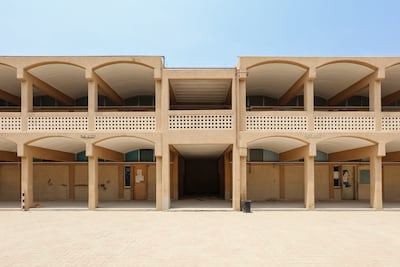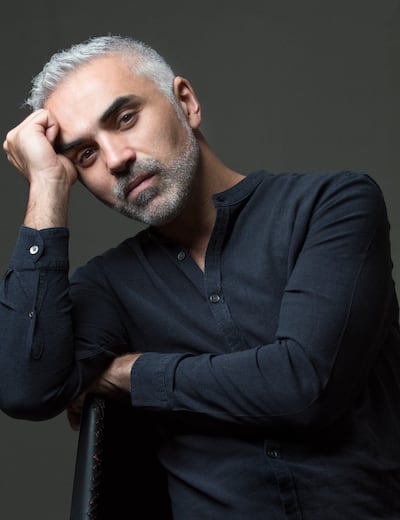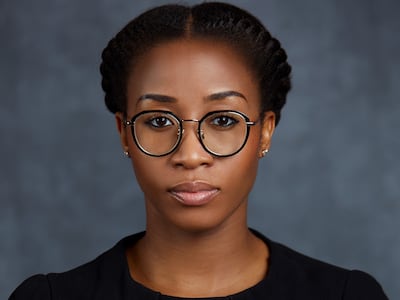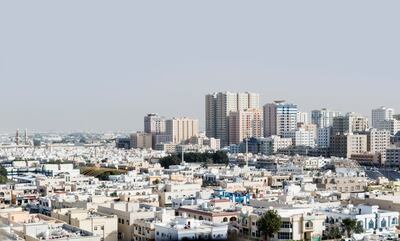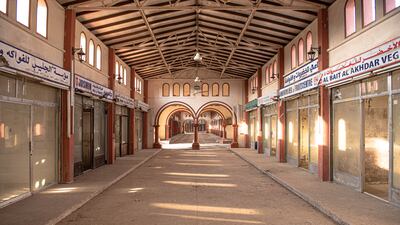The Sharjah Architecture Triennial is kicking off this weekend, marking the return of a platform that is unique in its focus on urbanism and architecture from West Asia, South Asia and Africa.
The triennial was founded in 2018 by the late Sheikh Khalid Al Qasimi. The inaugural event opened on November 9, 2019, and ran for three months.
From the outset, the triennial aimed to bring together interdisciplinary perspectives from architects, artists, anthropologists, scientists and policymakers. This multifaceted approach was key to identifying social and environment issues and exploring how architecture may bring about solutions to address them.
The first triennial was held under the theme of Rights of Future Generations, exploring life in urban areas across the Global South, as well as the long-term consequences of climate change and how the next generation will confront these problems.
It was curated by Adrian Lahoud, a renowned architect and the dean of the School of Architecture at the Royal College of Art in London.
The triennial blended exhibitions, installations and performances with screenings and panel discussions.
A handful of the projects in the triennial's first run sought to upend preconceptions about desert environments – often regarded as barren – and our approach to cultivating a lush landscape. These included models for non-irrigated urban gardens specifically suited for desert environments.
There were projects that focused on gender and politics in relation to industrialisation and urban development. Others looked towards shifting landscapes, underscoring how climate change affected communities around the world.
Besides its on-ground exhibitions, projects and performances, the triennial also has a robust series of online and print publications that complement its themes.
Participants released essays on various media platforms including on the event's website, which were then collected in a book entitled Conditions.
A second volume, Rights of Future Generations: Propositions, was then released in September 2021. It features documentation of the show alongside writings from theorists and activists.
Now in its second iteration, the programme runs until March 10, and reprises its examination of the connection between architecture and the environment, as well as the histories that inform that relationship.
The event returns to many of its repurposed venues, including the Al-Qasimiyah School and the old Al Jubail vegetable market in Sharjah. The triennial’s theme for its second run is The Beauty of Impermanence: An Architecture of Adaptability. In her curatorial statement, Tosin Oshinowo said the theme explores how issues of scarcity in the Global South have honed an ethos of reuse, reappropriation, collaboration and innovation.
“This model celebrates the use of natural materials with the understanding that repair and reconstitution are instinctive, necessary and desirable,” said Oshinowo, an architect and designer.
“It also embraces the idea that nothing can be permanent, and that everything in our environment should adapt to conditions of scarcity to match our realities and needs, thereby resulting in a progressive and evolving architecture.”
Oshinowo assembled a curatorial advisory board to augment her ambitions for the 2023 triennial. The board includes Sheikha Hoor Al Qasimi, president of the Sharjah Architecture Triennial and the Sharjah Art Foundation; Beatrice Galilee, co-founder and executive director of The World Around, a platform for architecture and design discourse.
It also includes Mariam Kamara, founder of Atelier Masomi, an architecture and research firm in Niger; Rahul Mehrotra, founder of architecture firm RMA Architects of Mumbai and Boston, and chair of the department of urban planning and design at the Harvard Graduate School of Design; British-Nigerian artist Yinka Shonibare; and Brazilian architect Paulo Tavares.
“In this edition of the Sharjah Architecture Triennial, we will explore design solutions built from conditions of scarcity and how these illuminate a pathway forward to reorient our conversation on sustainability,” Oshinowo said.
“Whereas the current global perspective on sustainability relies on technical innovation, this new perspective prioritises contextual solutions, resource sharing and waste reuse.”
Fifa%20World%20Cup%20Qatar%202022%20
%3Cp%3E%3Cstrong%3EFirst%20match%3A%20%3C%2Fstrong%3ENovember%2020%0D%3Cbr%3E%3Cstrong%3EFinal%2016%20round%3A%20%3C%2Fstrong%3EDecember%203%20to%206%0D%3Cbr%3E%3Cstrong%3EQuarter-finals%3A%20%3C%2Fstrong%3EDecember%209%20and%2010%0D%3Cbr%3E%3Cstrong%3ESemi-finals%3A%20%3C%2Fstrong%3EDecember%2013%20and%2014%0D%3Cbr%3E%3Cstrong%3EFinal%3A%20%3C%2Fstrong%3EDecember%2018%3C%2Fp%3E%0A
Tips for job-seekers
- Do not submit your application through the Easy Apply button on LinkedIn. Employers receive between 600 and 800 replies for each job advert on the platform. If you are the right fit for a job, connect to a relevant person in the company on LinkedIn and send them a direct message.
- Make sure you are an exact fit for the job advertised. If you are an HR manager with five years’ experience in retail and the job requires a similar candidate with five years’ experience in consumer, you should apply. But if you have no experience in HR, do not apply for the job.
David Mackenzie, founder of recruitment agency Mackenzie Jones Middle East
The 12 breakaway clubs
England
Arsenal, Chelsea, Liverpool, Manchester City, Manchester United, Tottenham Hotspur
Italy
AC Milan, Inter Milan, Juventus
Spain
Atletico Madrid, Barcelona, Real Madrid
Tightening the screw on rogue recruiters
The UAE overhauled the procedure to recruit housemaids and domestic workers with a law in 2017 to protect low-income labour from being exploited.
Only recruitment companies authorised by the government are permitted as part of Tadbeer, a network of labour ministry-regulated centres.
A contract must be drawn up for domestic workers, the wages and job offer clearly stating the nature of work.
The contract stating the wages, work entailed and accommodation must be sent to the employee in their home country before they depart for the UAE.
The contract will be signed by the employer and employee when the domestic worker arrives in the UAE.
Only recruitment agencies registered with the ministry can undertake recruitment and employment applications for domestic workers.
Penalties for illegal recruitment in the UAE include fines of up to Dh100,000 and imprisonment
But agents not authorised by the government sidestep the law by illegally getting women into the country on visit visas.
Paatal Lok season two
Directors: Avinash Arun, Prosit Roy
Stars: Jaideep Ahlawat, Ishwak Singh, Lc Sekhose, Merenla Imsong
Rating: 4.5/5
White hydrogen: Naturally occurring hydrogen
Chromite: Hard, metallic mineral containing iron oxide and chromium oxide
Ultramafic rocks: Dark-coloured rocks rich in magnesium or iron with very low silica content
Ophiolite: A section of the earth’s crust, which is oceanic in nature that has since been uplifted and exposed on land
Olivine: A commonly occurring magnesium iron silicate mineral that derives its name for its olive-green yellow-green colour
COMPANY PROFILE
Name: Lamsa
Founder: Badr Ward
Launched: 2014
Employees: 60
Based: Abu Dhabi
Sector: EdTech
Funding to date: $15 million
COMPANY%20PROFILE
%3Cp%3E%3Cstrong%3ECompany%20name%3A%3C%2Fstrong%3E%20The%20Cloud%3C%2Fp%3E%0A%3Cp%3E%3Cstrong%3EStarted%3A%3C%2Fstrong%3E%202018%3C%2Fp%3E%0A%3Cp%3E%3Cstrong%3EFounders%3A%3C%2Fstrong%3E%20George%20Karam%20and%20Kamil%20Rogalinski%3C%2Fp%3E%0A%3Cp%3E%3Cstrong%3EBased%3A%3C%2Fstrong%3E%20Hub71%2C%20Abu%20Dhabi%2C%20UAE%3C%2Fp%3E%0A%3Cp%3E%3Cstrong%3EIndustry%3A%3C%2Fstrong%3E%20Food%20technology%3C%2Fp%3E%0A%3Cp%3E%3Cstrong%3EFunding%20size%3A%3C%2Fstrong%3E%20%2410m%2B%3C%2Fp%3E%0A%3Cp%3E%3Cstrong%3EInvestors%3A%3C%2Fstrong%3E%20Middle%20East%20Venture%20Partners%2C%20Olayan%20Financing%2C%20Rua%20Growth%20Fund%3C%2Fp%3E%0A
Why it pays to compare
A comparison of sending Dh20,000 from the UAE using two different routes at the same time - the first direct from a UAE bank to a bank in Germany, and the second from the same UAE bank via an online platform to Germany - found key differences in cost and speed. The transfers were both initiated on January 30.
Route 1: bank transfer
The UAE bank charged Dh152.25 for the Dh20,000 transfer. On top of that, their exchange rate margin added a difference of around Dh415, compared with the mid-market rate.
Total cost: Dh567.25 - around 2.9 per cent of the total amount
Total received: €4,670.30
Route 2: online platform
The UAE bank’s charge for sending Dh20,000 to a UK dirham-denominated account was Dh2.10. The exchange rate margin cost was Dh60, plus a Dh12 fee.
Total cost: Dh74.10, around 0.4 per cent of the transaction
Total received: €4,756
The UAE bank transfer was far quicker – around two to three working days, while the online platform took around four to five days, but was considerably cheaper. In the online platform transfer, the funds were also exposed to currency risk during the period it took for them to arrive.
Company%C2%A0profile
%3Cp%3E%3Cstrong%3ECompany%20name%3A%20%3C%2Fstrong%3ETuhoon%0D%3Cbr%3E%3Cstrong%3EYear%20started%3A%20%3C%2Fstrong%3EJune%202021%0D%3Cbr%3E%3Cstrong%3ECo-founders%3A%20%3C%2Fstrong%3EFares%20Ghandour%2C%20Dr%20Naif%20Almutawa%2C%20Aymane%20Sennoussi%0D%3Cbr%3E%3Cstrong%3EBased%3A%20%3C%2Fstrong%3ERiyadh%0D%3Cbr%3E%3Cstrong%3ESector%3A%20%3C%2Fstrong%3Ehealth%20care%0D%3Cbr%3E%3Cstrong%3ESize%3A%20%3C%2Fstrong%3E15%20employees%2C%20%24250%2C000%20in%20revenue%0D%3Cbr%3EI%3Cstrong%3Envestment%20stage%3A%20s%3C%2Fstrong%3Eeed%0D%3Cbr%3E%3Cstrong%3EInvestors%3A%20%3C%2Fstrong%3EWamda%20Capital%2C%20Nuwa%20Capital%2C%20angel%20investors%3C%2Fp%3E%0A
Specs
Engine: Dual-motor all-wheel-drive electric
Range: Up to 610km
Power: 905hp
Torque: 985Nm
Price: From Dh439,000
Available: Now
Dengue%20fever%20symptoms
%3Cp%3EHigh%20fever%20(40%C2%B0C%2F104%C2%B0F)%3Cbr%3ESevere%20headache%3Cbr%3EPain%20behind%20the%20eyes%3Cbr%3EMuscle%20and%20joint%20pains%3Cbr%3ENausea%3Cbr%3EVomiting%3Cbr%3ESwollen%20glands%3Cbr%3ERash%26nbsp%3B%3C%2Fp%3E%0A
Global state-owned investor ranking by size
|
1.
|
United States
|
|
2.
|
China
|
|
3.
|
UAE
|
|
4.
|
Japan
|
|
5
|
Norway
|
|
6.
|
Canada
|
|
7.
|
Singapore
|
|
8.
|
Australia
|
|
9.
|
Saudi Arabia
|
|
10.
|
South Korea
|
The specs: 2018 Audi RS5
Price, base: Dh359,200
Engine: 2.9L twin-turbo V6
Transmission: Eight-speed automatic
Power: 450hp at 5,700rpm
Torque: 600Nm at 1,900rpm
Fuel economy, combined: 8.7L / 100km
The%20specs
%3Cp%3E%3Cstrong%3EEngine%3A%3C%2Fstrong%3E%206.5-litre%20V12%20and%20three%20electric%20motors%0D%3Cbr%3E%3Cstrong%3EPower%3A%20%3C%2Fstrong%3E1%2C015hp%0D%3Cbr%3E%3Cstrong%3ETorque%3A%20%3C%2Fstrong%3E1%2C500Nm%20(estimate)%0D%3Cbr%3E%3Cstrong%3ETransmission%3A%3C%2Fstrong%3E%20Eight-speed%20dual-clutch%20auto%0D%3Cbr%3E%3Cstrong%3EOn%20sale%3A%3C%2Fstrong%3E%20Early%202024%0D%3Cbr%3E%3Cstrong%3EPrice%3A%20%3C%2Fstrong%3EFrom%20Dh2%20million%20(estimate)%3C%2Fp%3E%0A
UAE currency: the story behind the money in your pockets
